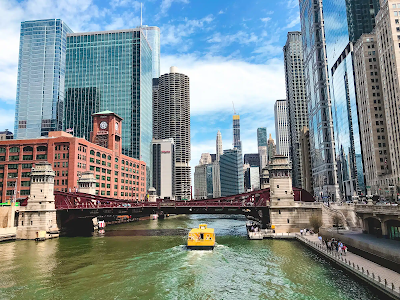Market Trends & Predictions
If you’re considering buying a home in Chicago, you might be wondering: Is now the right time to invest in property? The Chicago real estate market has experienced fluctuations in recent years, but as we move through 2024 and into 2025, several key factors indicate whether now is a smart time to buy.
Historically, the best time to buy a home in Chicago has been late summer through early fall (August to October) when the market slows down, and sellers become more motivated. But is this still true today? Let’s explore Chicago’s real estate market trends, mortgage rates, and inventory forecasts to help you make an informed decision.
Chicago Real Estate Market Overview

Chicago’s housing market remains dynamic, offering potential buyers a variety of options across different neighborhoods. According to Redfin, home prices have steadily increased, but opportunities still exist for strategic buyers.
1. Home Prices Are Rising but Still Competitive
Chicago remains one of the most affordable major cities compared to New York, Los Angeles, and San Francisco. Home prices are projected to increase by 4.6% by early 2025, but they still offer a great opportunity for buyers looking to enter the market before costs climb higher.
✅ Best for Buyers Who: Want to secure a property before prices rise further.
❌ Challenges: Rising prices could impact affordability for some buyers.
2. Mortgage Rates & Affordability
Mortgage rates have been fluctuating, making affordability a major concern. While rates may stabilize or slightly decrease later in 2024, waiting too long could result in higher home prices. Zillow’s data indicates that mortgage rates continue to influence market conditions.
✅ Best for Buyers Who: Can secure a favorable mortgage rate now.
❌ Challenges: High-interest rates can affect monthly payments—buyers should shop around for the best financing options.
3. Seasonal Market Trends: When to Buy in Chicago
Chicago’s real estate market follows a predictable seasonal cycle:
- Spring & Summer (March–July): Competitive market, higher prices, bidding wars.
- Late Summer & Early Fall (August–October): Best time to buy, as demand slows and sellers are more willing to negotiate.
- Winter (November–February): Fewer listings, but motivated sellers may offer discounts.
✅ Best for Buyers Who: Want to negotiate a better deal in the late summer or fall.
❌ Challenges: Lower inventory in winter might limit choices.
Best Neighborhoods to Buy in Chicago (2024-2025)

If you’re looking for an area with strong appreciation potential and great livability, consider these top Chicago homes locations:
🏡 Logan Square – Trendy, with rising property values.
🏡 West Loop – Ideal for investment properties and luxury condos.
🏡 Hyde Park – A blend of historic charm and modern development.
🏡 South Loop – Perfect for those seeking high-rises with lakefront views.
🏡 Bridgeport – Up-and-coming area with increasing home values.
Should You Buy Now or Wait?
Buy Now If:
✅ You want to secure a home before prices rise further.
✅ You can lock in a mortgage at a competitive rate.
✅ You find a motivated seller offering a great deal.
Wait If:
❌ You’re expecting mortgage rates to drop significantly.
❌ You prefer a wider selection of homes available in the spring market.
Conclusion
While home prices are rising in Chicago real estate, the market still offers opportunities for buyers, especially in the late summer and early fall months. If you find the right home at the right price, now could be the best time to buy before prices increase further in 2025.
For expert guidance on buying or selling a home in Chicago, visit Heart of Chicago Homes and check out the latest Chicago real estate market updates. Whether you’re looking to buy a home in Chicago or sell a home in Chicago, our team is here to help.
Sources :
Zillow Market Data Chicago Association of Realtors Redfin Chicago Housing Market Trends
🏡First-Time Homebuyer?
Chicago real estate is a great investment! We’ll guide you through the process and help you qualify—even with credit challenges.
📍 Don't Miss Out on the Perfect Home! Get access to exclusive listings not found online.
👉 Visit www.heartofchicagohomes.com or call/text (815) 765-4252 to learn more.
📩 Email us at info@heartofchicagohomes.com.











































